 Petzlover
PetzloverBordoodle is originated from United States but Russian Harlequin Hound is originated from Russia. Bordoodle may grow 13 cm / 5 inches shorter than Russian Harlequin Hound. Both Bordoodle and Russian Harlequin Hound are having almost same weight. Bordoodle may live 3 years more than Russian Harlequin Hound. Both Bordoodle and Russian Harlequin Hound has almost same litter size. Both Bordoodle and Russian Harlequin Hound requires Low Maintenance.
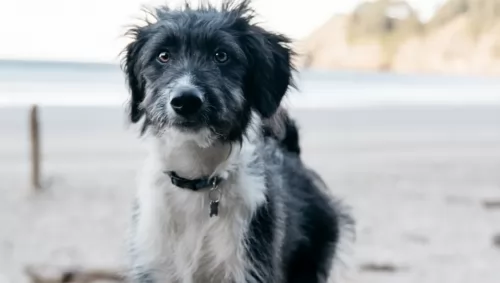 Known also as a Borderpoo or Borderdoodle, the Bordoodle is a designer- or hybrid breed which hails from the United States of America.
Known also as a Borderpoo or Borderdoodle, the Bordoodle is a designer- or hybrid breed which hails from the United States of America.
Both the dogs used in the development of this cross-breed are the Poodle and the Border Collie, and both these dog breeds have their own lengthy histories.
The history of the Bordoodle is short, as it is a modern crossbreed which has been purposefully bred by breeders to bring about a dog with certain looks and temperament.
The origins of the Russian Harlequin Hound are somewhat vague as there are many Russian hunting hounds and many of them have a similar ancestry.
The Russian Harlequin Hound is an indigenous hound whose origins go back to the 18th century. The first breed standard was published in 1925.
The breed was then developed during the early 1900s – being a mix of Russian Hound and English Foxhound. The Russian Harlequin Hound is a rare dog breed and you will find it almost exclusively in Russia.
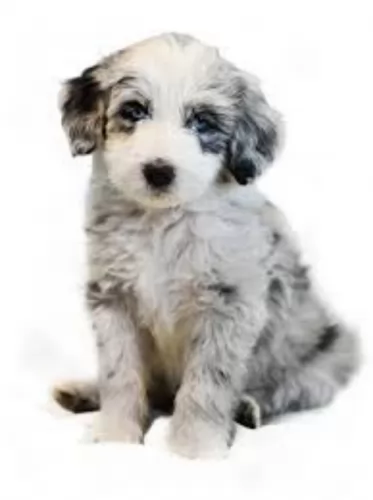 The Bordoodle isn’t a purebred dog but is a cross between a Poodle and a Border Collie.
The Bordoodle isn’t a purebred dog but is a cross between a Poodle and a Border Collie.
He has a soft, medium length coat which is inclined to be wavy. Colors are essentially black and white but chocolate, cream, fawn, merle and grey are also seen.
He is a medium sized dog standing at between 38cm and 55cm and weighing between 13kg and 27kg. The long tail is feathery, the ears floppy or semi-erect and the brown eyes are bright and intelligent. The muzzle is medium to long.
As with any mixed breed dog, the Bordoodle can take after either parent dog but generally the Borderdoodle will be a medium sized dog.
With the Bordoodle you can expect nothing less than a highly intelligent dog. That is because both the Poodle and the Border Collie are super intelligent dogs so the Bordoodle is guaranteed to have got a good portion of this intelligence from both breeds.
It makes training and socialization easy for the dog. It is important for your Bordoodle to be trained and socialized if you want him to be obedient and relaxed around strangers and other pets. As it is, his amicable nature makes the hybrid dog of yours a great family pet – getting on well with other pets in the home as well as with children.
Apart from being such a smart dog, the Bordoodle is active, playful, loving and devoted – everything a serious dog owner wants in a pet. This is a dog that doesn’t really know the meaning of the word aggressive.
The Russian Harlequin Hound is a medium to large sized dog that stands between 55 – 68cm in height and weighs between 18 – 31kg.
He has a solid build with long, straight legs with a long tail that can be slightly curved. The head is broad and square with medium sized ears which are floppy. The short coat is essentially white with tri-colored markings of white, tan and black.
The Russian Harlequin Hound has an amicable expression to his face and is a friendly social dog breed. He is lively and energetic, and with his hunting background will required a good deal of exercise.
They make great family pets, getting on well with children in the home and making friends with any other pets in the family. He is a gentle dog and with training and socialization is well mannered and obedient.
He loves his human family and wants to spend time with them in their company. He isn't suited to life in the city and a small property, but will require a home with bigger grounds.
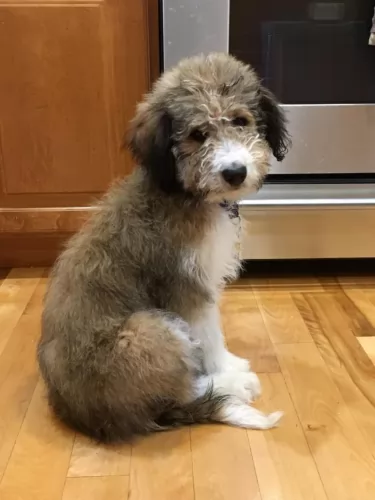 Bordoodles have two great dog breeds to thank for the way they turn out. When you think of the Border Collie and Poodle, you know you’re going to get a dog that is friendly, social, playful, loving and devoted – the ideal family pet.
Bordoodles have two great dog breeds to thank for the way they turn out. When you think of the Border Collie and Poodle, you know you’re going to get a dog that is friendly, social, playful, loving and devoted – the ideal family pet.
Intelligent, he is easy to train too, and with excellent care, you’re going to have a most wonderful family pet and companion, full of fun and life.
The Russian Harlequin Hound has always been a hunting dog, known for his excellent hunting skills. He isn’t only a good hunting dog, but he makes a good family pet too.
If you’re looking for an unusual dog breed that is also intelligent, loyal and loving, then you might want to consider this Russian Harlequin Hound.
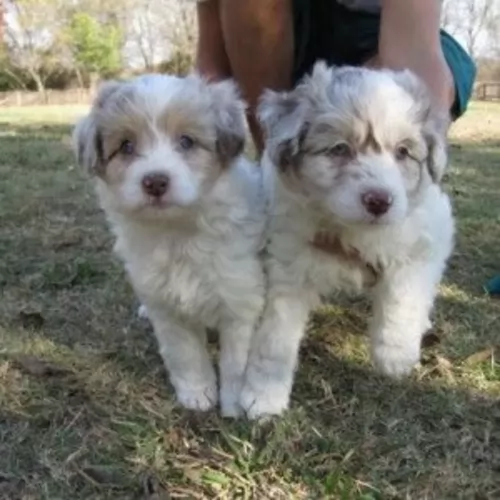 Bordoodles, when well cared for, can live to be 12-15 years of age. There aren’t going to be many health issues to contend with with your Bordoodle as there are no known health problems in this robust breed.
Bordoodles, when well cared for, can live to be 12-15 years of age. There aren’t going to be many health issues to contend with with your Bordoodle as there are no known health problems in this robust breed.
Nonetheless there are some common dog illnesses that you need to be aware of such as progressive retinal atrophy, hip dysplasia and hypothyroidism.
With hypothyroidism, the thyroid gland in the neck of your pet produces a hormone known as thyroxine that controls metabolism, but the disease hypothyroidism makes it that the gland doesn’t make enough thyroxine. Signs that your dog has this illness includes a dull coat, inflamed skin and even hair loss.
Get him to the vet immediately who will do blood tests and provide treatment. Mercifully it isn’t something that is life-threatening.
Your Russian Harlequin Hound is a rare dog breed that can reach 12 years of age if well cared for. There are some dog ailments that must be watched for. Cancer, ear infections and skin allergies can be problems to look out for. Other troublesome ailments can be -
This is a more common disease with deep-chested dogs, and the deep chested Russian Harlequin Hound is prone to bloat. Gas is trapped in the stomach and the stomach can actually twist. It can be life threatening. Your pet will have a hard, swollen belly and will be restless and salivating. Get him to the vet immediately. He may well require immediate surgery.
This condition is all about problems with the hip joints. It is sad for any dog with this disease as it can be painful for your pet to walk. Inflammation and arthritis can mean your pet being in pain. He can become lame too.
There are anti-inflammatory medications and your vet will suggest other treatments to make sure your pet is as comfortable as can be.
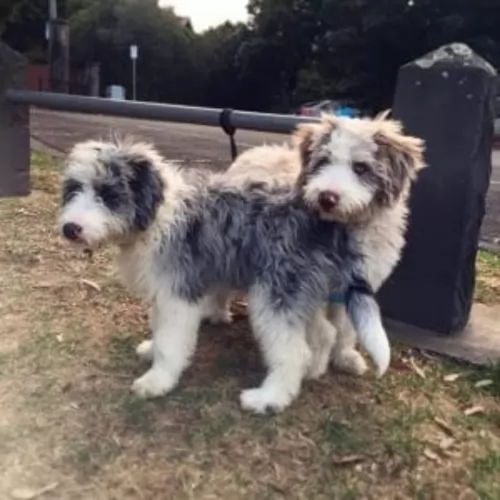 The Bordoodle is a dog which doesn’t shed that much so his grooming requirements are low and he is considered as a hypoallergenic dog.
The Bordoodle is a dog which doesn’t shed that much so his grooming requirements are low and he is considered as a hypoallergenic dog.
He will need to have his coat brushed at least twice a week to keep it shiny, soft and smooth. Depending on how your Bordoodle turns out, he may even require trimming at a professional groomer.
Make time to check his ears inside and out and learn how to clean the inside of his ears to avoid infection and wax build-up.
Dental hygiene is also imperative in dogs, and neglecting to do this will mean food particles and bacteria accumulating along your pet’s gumline, resulting in gingivitis and periodontal disease.
Every dog will require regular exercise and you can get your Bordoodle to join you in your walks. He is the kind of dog that can happily adjust to city or country life, but he will still need to have some ball games and other activities to keep him busy and happy.
He isn’t a dog that can be left alone day after day in the backyard. He is social and playful and loves the companionship of his human family.
If you feed your Bordoodle kibble from some of the top quality commercially produced foods, always research the dog food and take a good look at the ingredients.
The pet food you choose plays an important role in the longevity of your pet. There are commercially manufactured foods that have such poor ingredients that they can actually shorten your pet’s lifespan and cause stress to the kidneys and liver.
If in any doubt about what to feed your Bordoodle, speak to your vet. Cooked brown rice, cooked vegetables and cooked chicken can sometimes be mixed into your pet’s kibble. Raw meat should also occasionally be added in to ward off skin allergies.
The Russian Harlequin Hound needs both mental and physical stimulation. He is a curious dog and wants to be out and about sniffing around and exploring. He will need to have a walk every day as well as lots of ball- and rope games. He will suit being the pet of a busy, outdoorsy family as opposed to a family of couch potatoes.
The Russian Harlequin Hound is looked upon as a low maintenance dog breed, and with his short, dense coat you can get by with just brushing him twice a week. Because he is such a lover of the outdoors check him over for ticks and fleas when you brush him.
Check inside his ears for redness and infection.
Open his mouth and look for bad, rotting teeth.
Check him over for any unusual lumps.
Make sure his eyes are clear and free of discharge.
Trim his nails.
Every dog should be fed excellent food as this encourages good health. Commercially manufactured dog foods can be wonderfully convenient and nutritious if you get the better quality ones.
Try and include some simple, tasty home-made food to his diet . High-quality dry dog food will provide a balanced diet, but you want to make it a little more tasty for him by giving him some chopped up boiled chicken, brown rice, sweet potatoes, carrots and spinach. This can be added into the dry kibble twice a week.
Try and include some raw meat occasionally. Fresh, cool water should always be available around the clock.